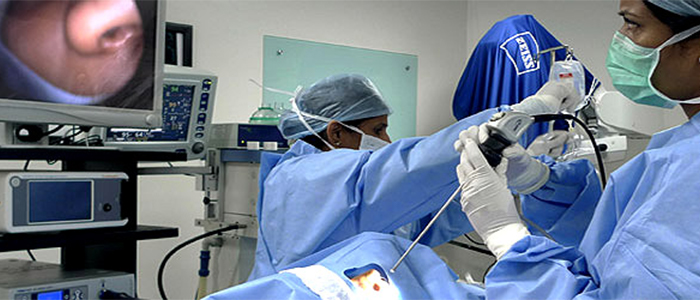Nose Surgeries
Septoplasty With Or Without Turbinoplasty
Corrects a deviated septum, which is a crooked wall inside the nose that makes it hard to breathe

Fess
1) FESS can help with nasal congestion, pain, drainage, difficulty breathing, and loss of sense of smell
2) It can also help remove inflamed or infected tissue, such as polyps
3) FESS is less invasive than open sinus surgery
4) It causes little damage to surrounding tissues
5) It allows for quicker tissue healing and shorter recovery

Bleeding Nose
1) Control of Nose bleed (Epistaxis)
2) We provide Advanced ENT Services may use a variety of techniques to control nosebleed, including nasal packing with expanding sponges ,electric cauterization, and surgery
